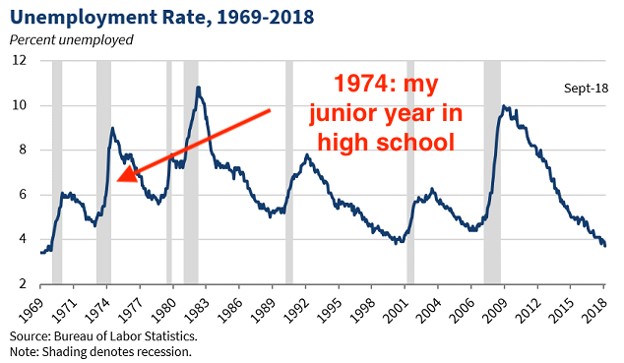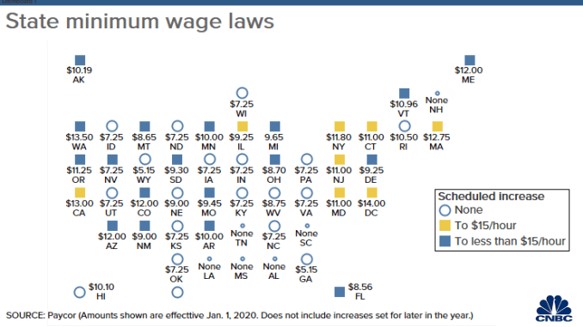Help Wanted: Restaurant Manager, Salary: $100,000.
 |
Let me explain ...
My father did not tolerate idleness. He worked 100 hours a week and expected his children (me!) to work at least half that.
However, there wasn’t a lot of work on our family farm during the winters, so my father pushed me to look for work at a restaurants and hamburger stands in the winter of 1974.
I applied at about a dozen restaurants and fast food joints, but nobody hired me. I finally got a job as a busboy at a Chinese restaurant, and I did cartwheels when I got my first paycheck because they paid me TWICE what my father was paying me.
 |
The reason I couldn’t find a job easily is because the unemployment rate was hovering around 7%. The U.S. was in a recession, so even those entry-level restaurant jobs were taken by adults trying to make a living; not high school punks like me.
Fast forward to today, the unemployment rate has dropped to 3.5%, a 50-year low. Today, anyone who truly wants to work can easily find a job — though maybe not a high paying one.
That’s why the restaurant industry is struggling to find workers. And not just entry-level, minimum wage jobs. Many restaurants — from mom-and-pop establishments to national chains — are struggling to hire for management-level jobs, too.
According to the Bureau of Labor Statistics, the median salary for restaurant managers was $54,240 in 2018. But even that salary — which is slightly under the national average of $56,516 — isn’t enough to entice prospective employees in today’s tight labor market.
Taco Bell announced last week that it will now pay its restaurant managers as much as $100,000 a year at some of its 450 company-owned restaurants in the Northeast and Midwest. This is a massive increase from the current $50,000–$80,000 range.
A spokeswoman for the fast-food chain is quoted saying:
We hope we can evaluate the effect of increased salaries on manager and team morale, restaurant performance, recruitment and retention, and customer experience.
Additionally, Taco Bell is giving all its eligible, full-tine employees up 24 hours of paid sick time a year.
And don’t forget that 21 states have raised their minimum wage in 2019. More increases went into effect on Jan. 1 of this year.
 |
Now, I’m all for people making more money. But at the same time, I need to look at this news with the discerning eyes of an investor. And you should, too.
Because don’t forget that higher wages ultimate lead to either:
A) Lower business profits and/or
B) Higher consumer prices.
In the restaurant industry’s case, those higher wages are definitely cutting into profits. Examples: Olive Garden and Shake Shack (SHAK) said that labor inflation is hurting their profit margins.
Here’s my point; if you’re going to invest in the stock market, restaurant stocks are not the ones that you should own.
Best wishes,
Tony Sagami
